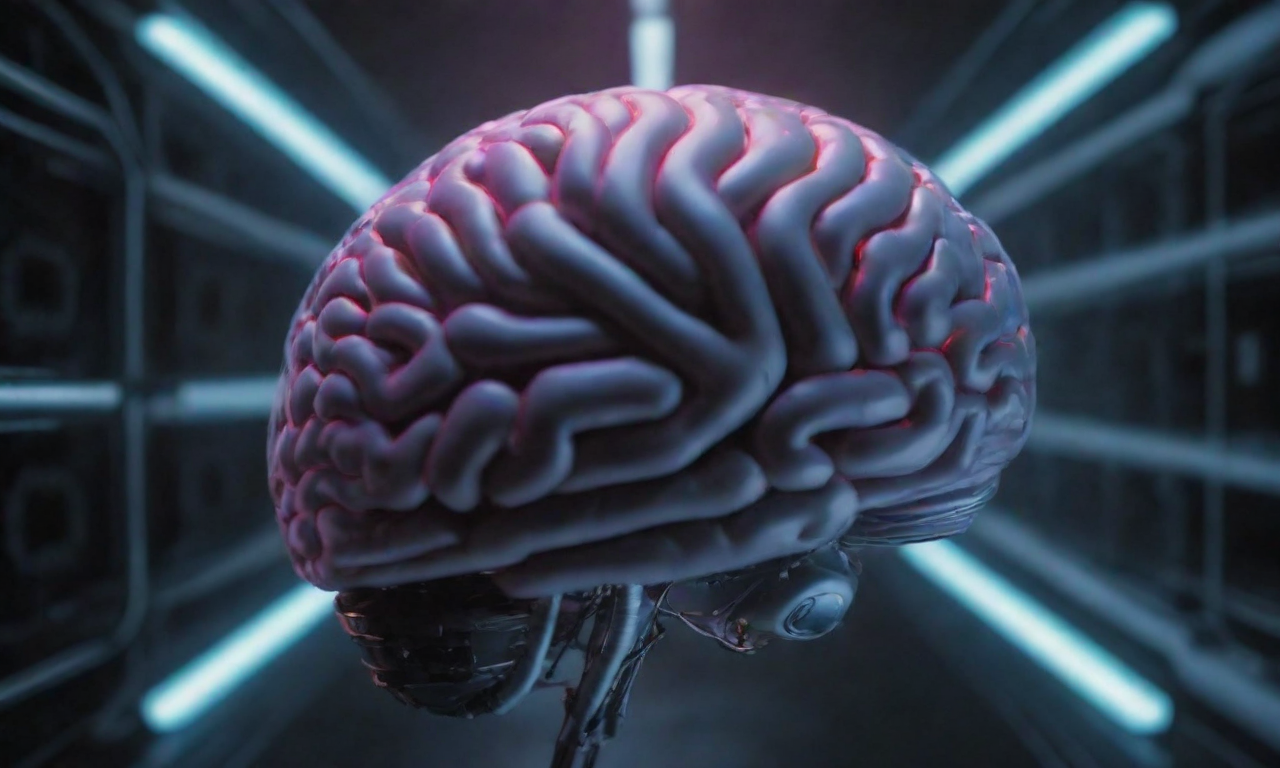By | Liu Yongmou
On January 30th, on social media platform X, Musk announced that his company Neuralink had completed the first-ever human brain-machine interface (BCI) device implantation surgery, once again attracting widespread attention to BCI technology. The last time Neuralink caused a global sensation was on August 29th, 2020, when they demonstrated their latest BCI device using pigs and Musk himself broadcasting live.From "pig transplants" to "human transplants," Neuralink took less than 4 years to make remarkable progress, sparking the public's imagination about the various "wonders" of brain-machine interfaces.Over the past 20 years, the development of high-tech industries, especially in areas like information and communication technology (ICT), artificial intelligence (AI), and biotechnology, has become increasingly intertwined with media hype.According to the logic of the technology-business "double helix," while technological advancements are important, attracting public attention is even more crucial, as "attention" equates to a continuous flow of investment. Therefore, companies such as OpenAI and Neuralink highly prioritize attracting traffic through public relations. Their hype surrounding new technologies has at least two notable features:Firstly, the company's founder personally endorses their products and plays the role of a "tech superhero." In the minds of many people, Musk is no longer just a boss but the real-life Iron Man from Marvel movies. With the endorsement of "heroes," tech companies are shrouded in a kind of idealistic "mystery," giving the impression that their ultimate goal is not profit, but rather using technology to create a better world at any cost.Secondly, these companies tap into people's interests and generate hot topics that engage the public, making it impossible to ignore. For example, since the concept of AI was introduced in the 1950s and 1960s, every wave of the AI boom has brought about discussions of "AI awakening," which has become an important topic in AI culture and even popular culture. Questions like how AI will awaken, the arrival of superintelligent AI, whether AI has morals, desires, or goals, and whether it will rule over humans... These questions have a significant element of fantasy and can be said to be completely unfounded, but they nevertheless have a great driving effect. As Rothzack pointed out in the 1990s: "The subconscious self-promotion of artificial intelligence research is quite simple: a large amount of funding has been injected into this research."In the process of developing brain-machine interface technology, Neuralink has consistently claimed that helping paraplegic patients is not their ultimate goal, but their long-term objective is to achieve "symbiosis with AI," using brain-machine interface technology to merge humans and AI. Musk believes that only in this way can humanity keep pace with AI. Obviously, this statement is related to the concept of "AI awakening."From the perspective of communication studies, the new tech "marketing tactics" of Western multinational companies have been very successful. After Musk announced the success of the first human brain-machine interface implantation surgery, the stock prices of related listed companies soared.However, similar "brain-machine interface marketing tactics" and "AI marketing tactics" can "mislead" public attention, leading to excessive discussions about questions like "will superintelligent AI dominate mankind?" and "do robots need ethics?" This diverts attention away from critical thinking about the real and valuable risks and ethical problems associated with new technologies, veering off-course and even trivializing serious issues. In addition, excessive hype can create excessive imagination, sometimes resulting in unforeseen obstacles to the development of new technologies.From a technological standpoint, many industry insiders have reservations about Neuralink's choice of an invasive access method. The development of brain-machine interface technology has been ongoing for at least forty to fifty years, exploring various access methods. Non-invasive methods do not require invasive surgery, cause less harm to the human body, and carry much smaller risks. Even within invasive access methods, there are degrees of invasiveness, and Neuralink has chosen a highly invasive method involving significant damage to the skull and drilling.Why did Neuralink make this choice? Some, such as Sigal Samuel, believe it is because they have overreaching ambitions, which is dangerous. Musk has repeatedly said that brain-machine interface technology is not just a medical device for treating paralysis but a channel for connecting AI with the human body, and the "bandwidth" of this connection, namely the speed of signal exchange, is crucial. Thus, Neuralink chooses highly invasive access methods because they bring the interfaces closer to the brain, allowing for faster signal exchange.Clearly, highly invasive brain-machine interfaces pose risks and ethical concerns, as they can lead to overly detailed interpretations of brain signals and raise the risk of privacy invasion and abuse. Furthermore, if the transmission of signals to the brain is maliciously intercepted and altered, there could be situations where emotions are manipulated, a concept known as "brain hacking" in neuroethics parlance.In the balancing act between accelerating technological development and mitigating technological risks, Musk chooses the former and neglects the latter. This reflects his belief in effective accelerationism (e/acc), as he openly proclaims himself to be an adherent of e/acc.E/acc, a popular ideology among Silicon Valley tech tycoons, advocates for pushing technological acceleration to the extreme, arguing that any efforts to control technological power hinder the progress of truth and must be completely discarded. Human well-being should not be a reason to control AI development; instead, humans must actively adapt to technological advancements, even if eventually robots and cyborgs replace humans as the dominant force on Earth. Obviously, this ideology carries a passionate and utopian vision of technology.Technology is a double-edged sword, capable of benefiting society but also bringing about many negative effects. In the past 20 years, many great thinkers have focused on the issue of the precipice of civilization, referring to the improper use of new technologies, such as nuclear warfare, AI warfare, climate change, and environmental destruction, which could lead to the extinction or suffering of human civilization.Human experiments are now underway! The cautious promotion of brain-computer interface technology is necessary.
By | Liu YongmouOn January 30th, on social media platform X, Musk announced that his company Neuralink had completed the first-ever human brain-machine interface (BCI) device implantation surgery, once again attracting widespread attention to BCI technolog








